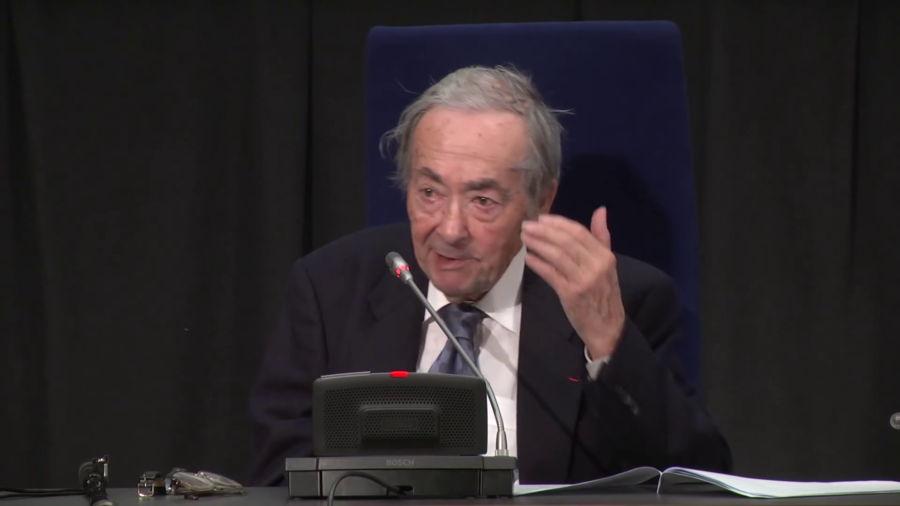[This is the third and final portion of this lecture. The second can be found here.]
George Steiner: What then shall we do? Some reforms are not difficult to envisage. We must purge our vocabulary, we must clean up our language to say what we mean.
What is a true university? It’s libraries; it is a custodian, and engagement with the living past. It strives to advance knowledge and clarify critically the processes of thought. A true university serves neither political purpose nor social programs, necessarily partisan and transitory. Above all, it rebukes censorship and correctness of any kind. What we have done through political correctness. The lies we are teaching, or having to accept. The questions we are not allowed to ask. Not even to ask. No question of answering. Political correctness makes impossible great fields of comparative study.
A university should house and it should honor anarchic provocation and the passion of uselessness. What is the most wonderful passion in the world? Uselessness. If someone comes to me and says, “I’m going to give my life to the study of Tang Dynasty bronzes,” [motions as if tipping his hat] I say, “You’re a very lucky person. You’re going to be a very happy and hungry person, but you lead a blessed life.” The notion that the useless is the highest form of human activity.
First and foremost we must insist on recapturing some of the ground the humanities have yielded to the sciences. Is a 21st century-educated man or woman literate when in total ignorance of elementary mathematics, of the concept of numeracy, which organize and determine the world around us? When she or he cannot grasp such a notion as a mean average, an irrational? Notions instrumental to our socioeconomic existence, indispensible to current debates on genetic modification, euthanasia, and law. The frequent assignment to the least gifted, to the most disillusioned, of the teaching of mathematics in our schools is a suicidal scandal. How does it go in the university of Newton, and Crick? If you get a first in mathematics, you can go on to research. If you get a good second, you will enter hedge funds and banking, which are very sophisticated in their mathematics. If you are a third—the worst—you will go teach mathematics. [audience laughs] You realize, the self-fulfilling lunacy of such a system. Overnight, Stalin decided that schoolteachers of mathematics would be paid as much as university professors, and honored throughout society. And he brought on the great revolution in Soviet and then in Russian mathematical literacy. It can be done. It can be done, it’s not impossible.
It is never too late. A core curriculum should, I’m persuaded, contain—and now I hope you will bear with me. This is my one very practical reform. At the center of our curriculum should be architecture. Why? It draws on mathematics—very richly, of course; geology; what I call in English the material sciences: steel, iron, wood. It draws on environmental politics at every level. It embodies ancestry and futurity. In architecture the notorious gap between the two cultures is wholly abolished. Archimedes joins Michelangelo. Together they teach us, and the technical phrase is so beautiful, “how to read a building.” How to read a building, that is the phrase they teach you. There is no aspect of law, sociology, environmental economics, but also urban politics, which architecture does not involve in our daily lives. How to read. How to read a building. How to read? Which is the center of my remarks this morning.
We are learning to read together. No secondary text, please. No criticism. No comments on comments on comments. Complete loss of truth. You learn to read together. And what do you do at the end—and this is the end of my too-long remarks this morning. The closing or rather opening motion is that of memorization. We learn by heart, par cœur. Not by brain. We learn by heart. The poem or piece of relevant prose to memorize is to thank for what the text has given us. It’s the only effective way of saying merci, thank you, danke. For the inexhaustible liberality of meaning, for the miracle of sense. What we know by heart cannot be taken from us. Never forget that.
